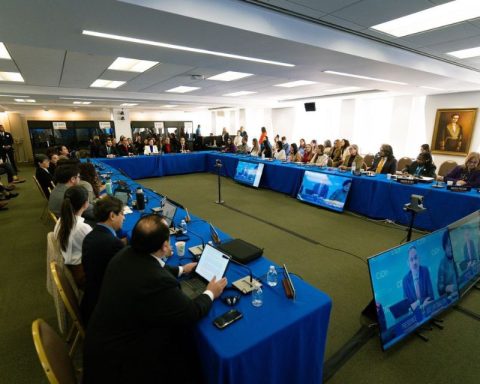The Executive Power and the bench of the ruling party in the Chamber of Deputies agreed in the last hours to send a bill whose sole objective will be to amend an “error” that went unnoticed in the government, among 129 legislators and that was not noticed by either. Parliament’s technical specialists.
The situation refers to the modification of the “governance” of the Technological University (UTEC), which according to a ratified law last month in both chambers of Parliament it became headed by four councillors.
In both chambers the law was endorsed only by the government coalition. It was with the vote of 48 deputies and 15 senators, by simple majority. What is sought to be fixed now is a rather particular situation: the law was approved and then promulgated without the majorities required by the Constitution.
The key is in the paragraph 1 of article 203 of the Constitution. There it is indicated that “The boards of directors of the educational services will be designated or elected in the manner established by law, sanctioned by an absolute majority of the total number of members of each chamber.”
As it is written, that paragraph is clear. The law would have required 50 votes in the Chamber of Deputies and 16 in the Senate. Something that obviously did not happen. And although as in all legal aspects there are two libraries, officialism sources pointed out to The Observer that the Executive adhere to the literalness of this article, for which a new passage is required by Parliament.
The situation went directly unnoticed in coalition ranks. Sources from the bank trusted that this detail was not noticed at that time and, aware of the problem, the referrals generated strong comments in the corridors, with a series of questions to the legal advisors of the Executive Branch for not having alerted about the detail either. technical.
The way of proceeding of the parliaments also put on the table the presentation of an appeal of unconstitutionality before the Supreme Court of Justice. La Diaria pointed out this Monday that the action will be promoted by the UTEC workers union, and It will be signed by teachers, graduates and students of that house of studies.
Nobody in the opposition noticed the detail either. “There was an error, we didn’t realize it,” said a member of the Frente Amplio bench in the Senate. In practice, the only warning during the parliamentary process corresponded to the deputy Eduardo Lust (Cabildo Abierto) who, in his capacity as a constitutionalist, registered the alert in the Education Commission of the lower house. It was a project that required absolute majorities of members in both chambers. The legislator told The Observer that he even met with colleagues from the opposition on the subject, but his notice passed without pain or glory. Lust maintained that both chose to focus the discussion from the political and ideological point of view.
Specifically, the new project will enter Parliament after the recess, it will be limited to a couple of articles giving an account of the error that must be corrected. In the substantive issue, the content will be the same as the law currently in force.
the comings are missing
The eventual presentation of an unconstitutionality appeal would not have suspensive effects on the current law approved with fewer votes than required. The law, moreover, was promulgated on November 29, just one day before the deadline for the renewal of the authorities of the institution expired.
Until now, UTEC had three directors: Rodolfo Silveira (who had taken office in 2012), Graciela do Mato (who has been there since 2015) and Andrés Gil (present on the council since 2020). Article 199 of the Law of Urgent Consideration (LUC) stated that the Board of Directors would have seven members: a rector elected by teachers, students and graduates, two delegates by the teaching order, another two by the student order, one by the workers and another by the employers. That should include the call for elections and the implementation of the co-government.
However, in the middle of this year the Executive Power changed its mind and sent a new project (which now must be amended) that limited the leadership to four directors who, in any case, have not yet been appointed. Although it is discounted that the current hierarchs will continue in their positions, they must be endorsed by Parliament. as far as he could tell The Observedr, the corresponding sales will be sent only in February.

















